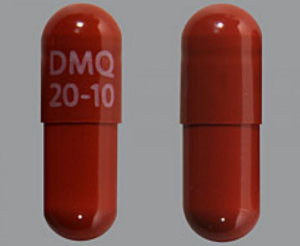It is called Nuedexta and it was originally compounded for patients who has a disease that caused uncontrollable laughing or crying, a symptom associated with multiple sclerosis (MS) or ALS, also known as Lou Gehrig’s disease. Only about 1% of  Americans suffer from those terrible maladies, and even less from the laughing and crying fits.
Americans suffer from those terrible maladies, and even less from the laughing and crying fits.
However, in 2012 aggressive sales people from Avanir Pharmaceuticals began to approach facilities that treat the elderly and any patients who suffer from dementia and Alzheimer’s disease. It was an “off the label” use, but Avanir created a network of advocacy by enlisting the help of doctors who were bribed with payments. In doing so, sales of Nuedexta have risen to 14 million pills in just four years, an increase of 400% making the company almost $300 million in 2016 alone.
The experiment
Here is the bottom-line ethical problem: Nuedexta has not been extensively studied on elderly patients. It is an experiment. One study was done and it was found that elderly patients with Alzheimer’s disease were twice as likely to fall after taking Nuedexta as patients who were not given the pharmaceutical.
The company has been taken to task for its claims as to what the pharmaceutical can do for Alzheimer’s patients. The claims that it can help those afflicted with dementia have been disputed. The “claims” were largely the results that were reported on questionnaires given to physicians who were paid by the company.
The condition Nuedexta was approved by the Food and Drug Administration (FDA) to treat is called PBA. As stated above it is a rare condition, especially when used for in patients with dementia but only after a specific diagnosis. Some physicians have been “accused” of using Nuedexta to treat patients whose agitation and make them difficult to manage.
In other words, they are simply using the drug to manage people and shut them up. I apologize for the non-technical terminology, but that is what they are doing. Who pays for this “experiment?” Ultimately, we do through Medicare and to the tune of hundreds of millions of dollars. Because “off the label” treatments are not covered, it is the goal of the Avanir drug reps to find physicians who will write the prescriptions to make it appear as though the patients are suffering from the uncontrollable laughing or crying from MS or ALS.
In research done by CNN for a major study (October 17, 2017) it was found:
“Thousands of the doctors prescribing Nuedexta have received money, or at least a meal, from its maker — a legal but controversial practice in the industry. Between 2013 and 2016, Avanir and its parent company, Otsuka, paid doctors nearly $14 million for Nuedexta-related consulting, promotional speaking and other services, according to government data. The companies also spent $4.6 million on travel and dining costs, both for speakers and for doctors being targeted by salespeople.”
Not surprisingly, the drug has become Avanir’s biggest moneymaker. It has gained attention with television commercials. The sales force is still expanding its use in elder-care facilities, but the problem is that the research behind its use in such facilities is just not there. It has been reported that there has been intense pressure on salespeople to keep pushing that unauthorized use by doing deals with physicians. It is a gray area, which means it is unethical.
Where does it stop?
The use of Avanir for conditions for which there has been little or no research has been conducted may be unethical, but we can concede that sometimes physicians may be impressed with the potential of its efficacy in certain situations.
The use of a salesforce to effectively bribe physicians to use the drug simply to increase revenues has no place in healthcare. Yet, the practice is happening with increasing frequency. Why is this happening? How has fraud become so well-established with patient care? Putting it another way, do you know what your elderly relative in nursing care is actually receiving in terms of their medications?
Obviously, there is little in the way of ethical review at any step of the process. There are no ethical checks and balances and meanwhile, at least in this case, the pharmaceutical company, its drug reps, the prescribing physicians and the nursing home facilities, are charging Medicare without consequences.
When will these practices stop? When good ethics are as valued as greed, and when patients and their families are regarded as people and not profit centers.
YOUR COMMENTS ARE WELCOME!


